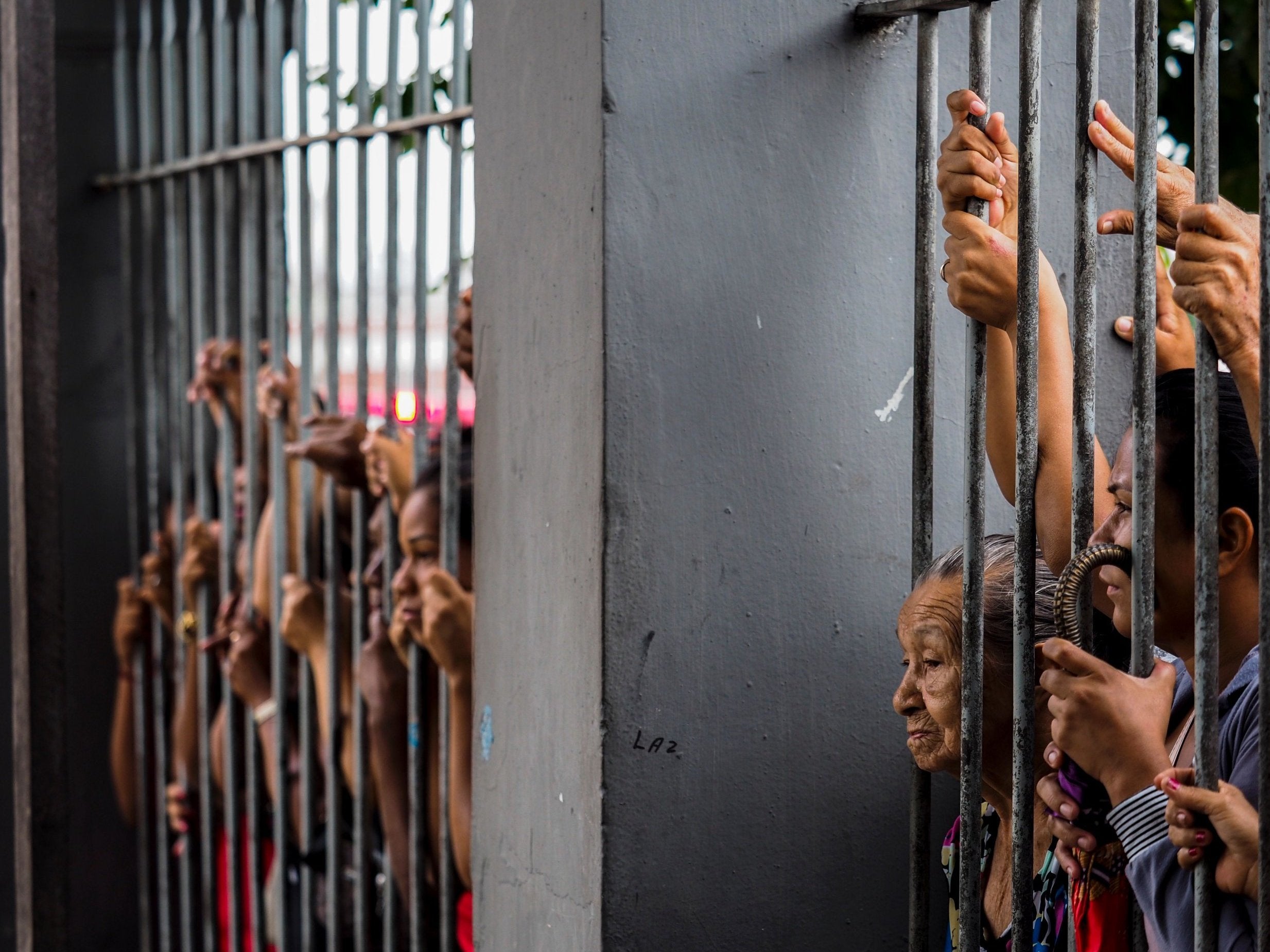Brazilian mothers and pregnant women illegally detained over non-violent crimes
'There are worrying signs that some judges are ignoring these protections, leaving mothers who have not been convicted of a crime to spend Mother’s Day in overcrowded, unsanitary cells instead of at home with their families,' says campaigner

Brazilian mothers and pregnant women accused of non-violent crimes are being illegally detained and held in pretrial detention in spite of a new law that explicitly bans this, a leading human rights organisation has warned.
Human Rights Watch found courts have been slow to implement new legal protections for mothers - some of whom have small children and others who have offspring with disabilities - and pregnant women. They found they had ignored them completely in some cases.
In 2018, a series of Supreme Court rulings and a new law put strict new limits on courts’ power to order pretrial detention for mothers and pregnant women.
The law now mandates house arrest instead of pretrial detention for pregnant women, mothers of people with disabilities, and mothers of children under 12, apart from for those accused of violent crimes or of crimes against their dependents.
“Brazilian law could not be clearer that the mothers of small children or of people with disabilities and pregnant women should not be behind bars while awaiting trial for non-violent crimes,” Maria Laura Canineu, Brazil director at Human Rights Watch, said.
Jair Bolsonaro: Brazil's far-right leader inauguration
Show all 20“Yet there are worrying signs that some judges are ignoring these protections, leaving mothers who have not been convicted of a crime to spend Mother’s Day [which falls on 12 May in Brazil and the US] in overcrowded, unsanitary cells instead of at home with their families.”
Data from 2018 shows that thousands of women who appear to have been eligible to these protections remained behind bars in pretrial detention, while more recent data from Rio de Janeiro state indicates that the problem has continued this year.
Researchers found the latest available data from the Justice Ministry’s National Prison Department shows that in September 2018, judges had released fewer than a third of the women who should have been released absent “exceptional” circumstances. This left more than 6,000 behind bars awaiting trial.
In January, a Rio de Janeiro judge ordered the pretrial detention of a mother who was accused of drug dealing because, the judge said, she put her children at risk and damaged their development with her criminal activity – despite the fact she had not been convicted. The judge concluded the woman was a “bad example” for the children.
Women in Brazil still face substantial barriers to gender equality and campaigners have raised concerns the election of Jair Bolsonaro will roll back women’s rights in the country. They have warned that the far right president poses a serious threat to human rights, particularly for women, the LGBT+ community, indigenous people, and Afro-Brazilians.
Brazil has the fifth highest femicide – the gender-motivated killing of women – rate in the world, according to rights group Article 19.
The Inter-American Commission on Human Rights has said that femicides are not an “isolated problem” but reflect “sexist values deeply rooted in Brazilian society”.
The rights organisation noted that black women, those belonging to indigenous groups and the LGBT+ community, as well as women politicians and human rights activists are most at risk of being killed. More than 1,000 women were killed in hate crimes tied to their gender in Brazil in 2017.
Brazil only has 74 shelters for victims of domestic violence despite having a population of more than 200 million, according to Human Rights Watch.
Subscribe to Independent Premium to bookmark this article
Want to bookmark your favourite articles and stories to read or reference later? Start your Independent Premium subscription today.

Join our commenting forum
Join thought-provoking conversations, follow other Independent readers and see their replies